- Home
- Helen Dunmore
With Your Crooked Heart Page 7
With Your Crooked Heart Read online
Page 7
Nine
Anna stays behind after school. The others have all gone, walking the mile back to the village in a long noisy straggle, or crammed into cars. There used to be a school right in the village, but it closed down five years ago. People say there ought to be a bus, but there isn’t. Anna drags a stool inside the store-cupboard, and reaches up to the shelf where jam-jars are kept. There are two small honey jars, smeared, dusty, but the right size. Anna rinses them in the classroom sink. There’s only a cold tap, and the bottle-brush is thick with sludge from the mixings of thirty palettes.
She’s Flower Monitor. That doesn’t mean Anna has to bring in all the flowers, Mrs Fairway explained. Everyone can bring in something from their garden, and it’s Anna’s job to put the flowers in water, keep them topped up, throw away the flowers when they are dead and clean the jars again.
‘What kind of flowers, Miss?’ asks Emily Faraday.
Mrs Fairway gives her a sharp look. ‘I’ve just said, Emily Faraday, any flowers you’ve got in your garden. Except your Dad’s prize chrysanthemums, of course.’
Half the class titters. Emily folds her arms, just like her mother, and gazes back at Mrs Fairway. Her face is silky with insolence. She is exceptionally pretty, with the bouncing, white-curled prettiness that every ten-year-old can recognize.
‘We haven’t got a garden, Miss,’ she says.
‘Then you can take yourself out for a walk, my lady, and pick some berries or ivy leaves from the side of the road. There’s plenty about.’
‘I’m not bothering to pick stuff for her,’ says Emily, just about under her breath. Fanny Fairway pretends not to hear.
The flowers have been in a bucket under the sink all day, thrust deep in the water, their thin stems tied with black cotton, their heads waxy, down-turned. They are snowdrops from Anna’s garden.
Anna doesn’t think of it as her garden. The garden belongs to the house, not to her or her father or Sonia. It is ancient, narrow and full of light, a terrace of grass and stone cut into the side of a steep black hill. It is backed by a retaining wall, and behind that the hill rears higher. Where the hill falls away from the garden there is another, lower wall, and then curious black railings, like spears. When you walk the length of the garden it’s like patrolling the deck of a ship. The paving stones are worn by hundreds of years of feet, but Anna’s shoes don’t fit the smooth hollows.
Spring’s early this year. Too early, everyone keeps saying, though Anna doesn’t see how spring can come too early. The third of February, and there are blue-tits ripping at the fat buds of flowering currant. Rhubarb’s already poking above the manure that’s banked up over it in winter. Its leaves are a furled, acid yellow, its shoots transparently red. Yesterday Anna walked the length of the garden, alongside the house and the barn, then through the stone arch to the second terrace. On her left was the retaining wall, high, smoke-black. Under the apple trees the snowdrops were flowering. It was four o’clock, and already beginning to be dark down in the valley. But up here the light was clear, and the snowdrops shone white. Everywhere she looked, there were more and more, as if looking at them made them show themselves. They made patches of light under the trees.
She touched them, and turned their faces up. They were white and cold, closed tight as if thinking they were still deep in the black earth. They wanted a touch of winter sun on their petals to open them. Anna unpacked a tight bud of flower. The slender petals parted, showing their green inner veins. And then she wanted to close them, to have them back as perfect as they’d been, but they wouldn’t close. The snowdrop hung, stiff and spoiled. Anna got up quickly and moved away from it, glancing up at the blind face of the wall as if someone might be looking out of it. A little farther off, she knelt on the grass, and began to pick snowdrops. When she had a bunch, she tied it with a stem of grass, and laid it on the paving stone. She’d find some proper thread to tie them later on. It didn’t matter how many she picked, because the white crowd of snowdrops was as thick as ever on the bare earth. Their whiteness was cool, solid, flawless. They made everything else look like a mistake.
It was very still. She looked back over her shoulder. Across the valley the woods were now quite dark. There were streaks of green running over the sky, and high up there was the trail of an aeroplane. The knees of her jeans were wet from the ground. She stood holding her bunches of snowdrops loosely so as not to crush them. The steep rise of hill on the other side of the valley looked so close in this light that she could have put out her hand and touched it. The river was making its noise, loud after a wet winter. Sometimes she heard it, sometimes everything seemed to be silent, even though the river was always there.
The dark had got into the garden now. It lay heaped in the angle of walls. It swept the grass like a rising tide. It was nearly at Anna’s feet. Her face calm, she walked back over the grass, placing her feet with care as if she were walking on stepping stones. She went through the arch, with the rhododendron tree on her right. It was rich with early buds, and it chattered with the harsh night noise of birds. You could see the splitting in the buds where crimson petals would come. Everything was too early, standing naked, waiting to be scorched by the frost that was sure to come.
In the store-cupboard there is a set of old comprehension books, with a chapter about Grace Darling in them. Anna sits on the floor, and reads.
‘… the ferocity of the storm and the ravening waves almost swamped their boat, but Grace Darling and her father rowed on undaunted. They knew that they and they alone offered a chance of rescue for the terrified souls clinging to the wreckage. Grace was a girl of few words. She said a silent prayer and bent to her oar. No soldier going into battle could have shown greater pluck and determination than Grace Darling on that stormy night. She did not guess that she would become a national heroine whose name would be on the lips of men, women and children throughout the nation. There was no thought of fame or honour in Grace Darling’s mind on that fateful night, as she rowed the lifeboat as well as any man. Stern purpose shone in her eyes…’
Anna reads to the end of the passage, then through the questions.
Why did Grace Darling become a national heroine?
Which honour was conferred upon Grace Darling in recognition of her courage?
Describe, in your own words, Grace Darling’s thoughts as she rowed the lifeboat.
Choose three of the following adjectives which describe Grace Darling’s actions: plucky, generous, foolhartly, dangerous, manly, courageous, prompt, headstrong, selfless, rash. Write a sentence describing Grace Darling using all three adjectives.
Where did Grace Darling travel to receive her honour? (Note that ‘receive’ follows the spelling rule introduced in Chapter 4: ‘i’ before ‘e’ except after ‘c’.)
There are eight pages of questions and exercises to three pages of story, and a black-and-white picture of Grace Darling in a long dress and a shawl, her hair flying, helping to push out the boat. One questions says, Find three adverbs which describe the way Grace Darling rowed. Example: She rowed slowly. Beside this, someone has written ‘she rowed sexily’ in pencil, and then tried to rub it out. Anna wonders if Fanny Fairway would miss one book out of thirty. She’d like to have that picture of Grace Darling. Boldly, bravely, steadfastly, fearlessly. Maybe she could tear it out. They don’t use these books any more, but Fanny Fairway probably still counts them.
Anna fills the honey jars with water. She untles the black thread which holds the flowers together, and they spill on to the wooden draining-board, wet and fresh. She puts a few flowers into the water, but they look like nothing. Quickly, she picks up a double handful and crams the jar.
Anna’s mother sits in the sun, her face loose, her hand around the stem of a glass. The glass sparkles. Every morning Anna’s mother washes out her glasses in hot soapy water, then hot clear water, then cold. She has glass-cloths to polish them. She has to buy new ones all the time, because once they’re dirty she never manages to wash them. But she
still tries to keep her glasses nice. She says, ‘You might as well shoot yourself as drink out of a used glass.’ The line of her drink ripples round the glass.
‘If you start thinking about what people think of you,’ she says, ‘there’s no end to it.’
Anna’s mother’s legs are spread and loose, like her face. Her white thighs are parted. At the top of them there’s the beginning of the forest that grows there. The curling hair is not the same colour as the hair on her head. The white thighs shift, the legs splay, the glass wobbles up to Anna’s mother’s lips. She drinks. There’s a sweet, powerful smell. Anna crouches in the corner, picks up her comic and reads ‘Minnie the Minx’.
‘But I’m not going to shoot myself,’ says her mother. ‘I wouldn’t give anyone the satisfaction.’ She reaches down and picks up a white paper bag of sherbet lemons. ‘Suck on them,’ she says, ‘don’t bite them.’
Anna sucks. She shuts her eyes as the stream of sherbet and saliva washes round her mouth. There is a glassy crunch of sugar.
‘You’re as bad as Johnnie,’ says her mother. ‘He can’t have anything in his mouth without biting it.’ And she laughs as if what she’s said is funny.
The snowdrop jar is still dirty. Anna rubs it. She’s put all the flowers into one jar, and there aren’t any left for the other. The caretaker’s in Class Three, banging the chairs. In a minute he’ll be here, shouting at her. ‘Have you not got a home to go to?’ She puts the jar on the window-sill. The snowdrops shine, but not as strongly, bravely, boldly in the classroom light as they did in the dark of the garden.
Anna runs up the road. Only another half-mile to home. The ponies in their winter coats look at her over their hay, as if they know something about her. She could take the path across the field, or she could go by the road, then the track. She’ll do that. It means going by the big trees that catch the wind in their branches, and make it thunder. She looks up and down the road. It’s empty, safe. Everyone else has gone home long ago. Anna thinks of Emily Faraday and Billy Arkinstall in their homes, tamed, made to take off their mud-cobbed shoes and help lay the table. But Billy Arkinstall’s mum is evil. She chases Billy out of the door with a broom and shouts after him. That’s why Billy lurks in the lanes, and hates Anna.
Anna walks under the trees and the wind lifts the hair up from her head and whips it across her eyes. With each step she takes, more miles drop away on either side. She can see for ever now, over the network of little fields and walls winding up to the moor. There’s the track the men go up at night, when they drink at the Golden Fleece, that keeps no hours. She knows about that, like all the children. They play cards for money and they take the short way back through the woods. They blaspheme as they stagger back, falling over tree-roots. They’re men, but not like her father. They’re rougher than him, but not as wild. She knows that. They’ll go back to their work on a Monday morning, because they have to. They don’t frighten her.
Here’s the turn. The valley, the track down, the answering track on the opposite flank of hill. Stone-walled fields, fencing, pale, tearing sky, moor. She starts to walk down.
A spatter of sharpness hits her sleeve. She thinks it’s the rain come quick, turned to sleet as it falls. Another spatter. Something hits her cheek. It stings. She puts up her hand. Little stones fall around her, on to the track. She thinks of animals kicking up stones, the soil spurting. Something laughs.
Someone laughs. Laughter brays out at her. A head bobs behind the wall, then another. Then they are down, hiding themselves. The silence hisses with wind as she stands stock-still on the track. Where the stone scored her cheek, it burns. Another hail falls around her but does not touch her. More laughter. The thump of feet, running away on the path back across the field, back to the village. She does not try to look over the high wall. She knows their faces, all of them. Billy Arkinstall, Jack Barraclough, David Ollerenshaw, Johnjo Dwyer. She doesn’t need to see them.
Anna wipes back her hair, touches her cheek, examines the finger that has touched it. There’s no blood. Ahead of her there are the beech trees, then the turn of the track, then the sharper turn down to the house. The boys have gone, and they won’t come back today. Anna is free for sixteen hours and forty-five minutes. She fixes her eyes on the other side of the valley, where night’s settling. There’s where the men go late at night. They don’t come back singing, they come stumbling into the tight-packed maze of the village again, past the streets and square and ginnels and the black, rearing church. They don’t ever get away.
A shape stands, white-faced, at the stone stile ahead. It’s David Ollerenshaw. They’ve fooled her. They thudded over the field so she’d think they’d gone back to the village. Then they doubled back, took the path further on, the one that comes out on to the track at the stone stile. They’re waiting for her. The rest of them will be crouched behind the wall, ready to jump out at her. They’ve cut her off from the house.
Her thoughts beat fast. Run back to the village, up the track. Run into the shop. Mrs Barraclough will be behind the counter, looking at her, keeping a sharp eye. Anna hasn’t got any money. She can’t linger with one of Mrs Barraclough’s plastic saucers, choosing from trays of fried eggs, pink shrimps, jelly babies and liquorice whips. Or run, run on, run fast, burst through the hands that stretch to catch her, and race on down the track, flying —
Still only David Ollerenshaw. The others aren’t showing themselves. She sets her face and withdraws, deep down, to the place no one can touch. She walks on down the track as if she’s walking on stepping stones, not looking at anyone or anything.
He comes through the narrow gap of the stile that is too wide for a beast, just right for a boy. No one follows him.
‘My dad’s got a dog,’ says Anna.
‘What kind of dog?’
‘A black dog. A great black dog. No one can touch it, only me and my dad. He found it at the crossroads.’
‘He never did. You’re a liar. You haven’t got a dog.’
‘Listen,’ says Anna, ‘you can hear it.’
The wind whines in the treetops. The side of the hill is alive and moving, soughing with the wind that funnels along the valley.
‘There,’ says Anna. ‘That’s him. My dad sets him by the gate to watch out for me. He’s so black you can’t see him till he jumps out of the shadow. The only thing you can see is his teeth.’
‘Your dad’s never got a dog.’ But the dog’s there somewhere, not far away, and they both know it.
‘It wasn’t me that threw them stones at you,’ says David.
‘They didn’t hit me, anyway.’
‘It was Billy Arkinstall.’
‘You were there.’
‘They’ve all gone, anyway.’
‘Why are you here, then?’ says Anna, bold now, advancing a pace towards him.
He shrugs. ‘I thought maybe a stone might’ve hit you. In your eye.’
Anna shakes her head.
‘What did you want to go bringing so many snowdrops to school for, anyway!’ he bursts out. ‘Showing off.’
‘I’m Flower Monitor.’
‘Only because Fanny Fairway likes you, because you live in a big house.’
‘She doesn’t’.
‘And you’re always telling her you’ve finished your work before anyone else has finished.’
‘The work’s too easy,’ says Anna, watching him.
‘Easy for you,’ he blusters.
‘Easy for you, too.’ She knows. She’s watched him lick through a page of maths at twice the speed of anyone else. But when Mrs Fairway asks for the answers he doesn’t put his hand up. He loses his homework, botches his calculations, gets a few things carefully wrong. His work’s much the same as anyone else’s by the time the teacher sees it.
‘Well,’ he goes on, more gently, dropping the playground indignation from his voice, ‘even if you are Flower Monitor, you don’t want to go bringing so many of the buggers another time.’
‘All right,’ she
agrees. ‘But Emily Faraday has got a garden. She was lying.’
‘She’s always lying.’
‘Yeah.’
He says nothing for a while. She could go now, he wouldn’t stop her. It’s nearly dark, and she’s supposed to be back before it gets dark.
‘It was the Gytrash you were talking about, wasn’t it? Not a real dog.’
She nods, though she doesn’t know what the Gytrash is.
‘I thought it was that. My dad’s seen him.’
‘Has he?’
‘One night when he was coming back along the track. He waited two hours in those beech woods, so as not to pass him.’
‘Did he?’
He looks sharply at her, suspicious. ‘My dad wasn’t drunk, if that’s what you think’.
‘Is it real, or is it a ghost? The Gytrash?’
‘He’s real enough. But only sometimes.’
‘The Gytrash,’ says Anna, tasting the word on her tongue.
‘I’ll be getting home now.’ He turns away, into the gloom of the field. She watches. He’s there, then he’s not. She doesn’t hear his footsteps, and neither of them calls goodbye.
Anna stands at the turn of the lane. Suddenly it’s night, and all the lights spring out at the windows. The house looks like somewhere she’d like to live, if she didn’t know what was inside. This is the best moment, standing outside, telling herself, ‘That’s my home. I’m going home.’ She slips her hand into her pocket and touches the torn-out picture of Grace Darling.
Anna is in the park with her mother and Johnnie. Her mother looks up, sees catkins on the branches, points to them. Johnnie steps forward, puts his hands around Mum’s waist and lifts her high above his head, so her face touches the catkin tassels. Anna sees Mum’s feet in their high-heeled black leather boots rise up past her face, not kicking, but pointed like a dancer’s. Johnnie holds her there for a long time. Mum doesn’t stir. She leans back, her face in the tassels, her pale lips smiling.

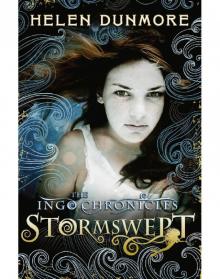 The Ingo Chronicles: Stormswept
The Ingo Chronicles: Stormswept The Deep
The Deep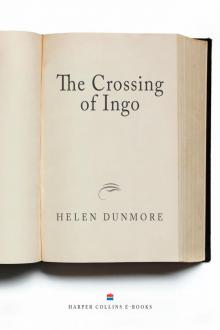 The Crossing of Ingo
The Crossing of Ingo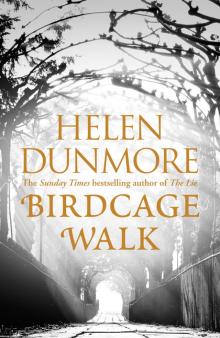 Birdcage Walk
Birdcage Walk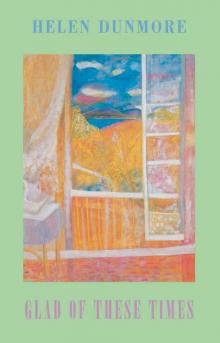 Glad of These Times
Glad of These Times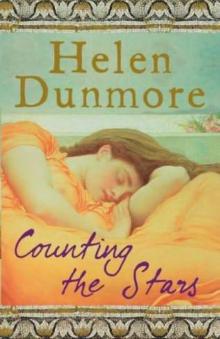 Counting the Stars
Counting the Stars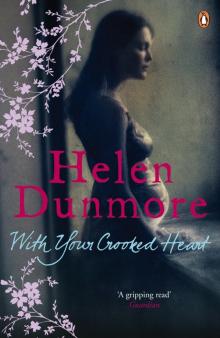 With Your Crooked Heart
With Your Crooked Heart Burning Bright
Burning Bright House of Orphans
House of Orphans Mourning Ruby
Mourning Ruby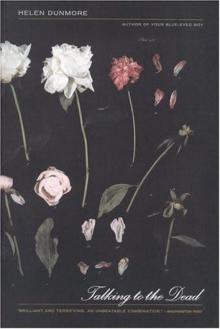 Talking to the Dead
Talking to the Dead Exposure
Exposure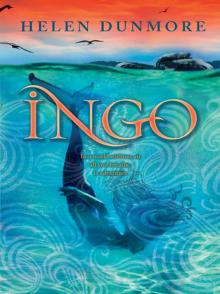 Ingo
Ingo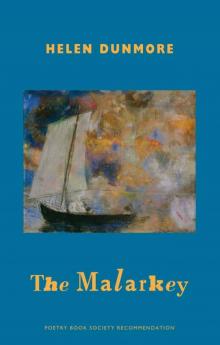 The Malarkey
The Malarkey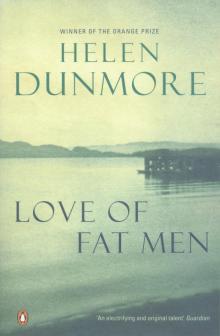 Love of Fat Men
Love of Fat Men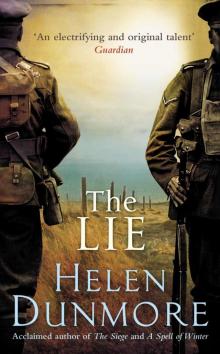 The Lie
The Lie The Siege
The Siege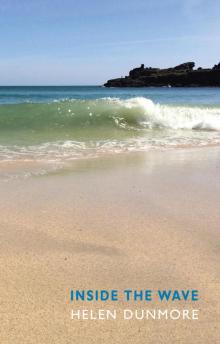 Inside the Wave
Inside the Wave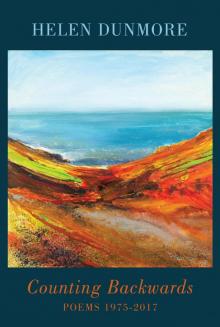 Counting Backwards
Counting Backwards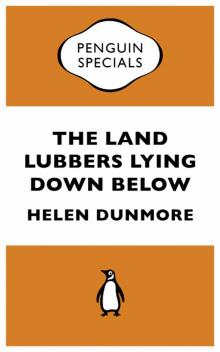 The Land Lubbers Lying Down Below (Penguin Specials)
The Land Lubbers Lying Down Below (Penguin Specials)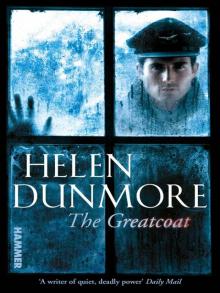 The Greatcoat
The Greatcoat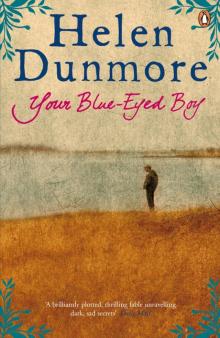 Your Blue Eyed Boy
Your Blue Eyed Boy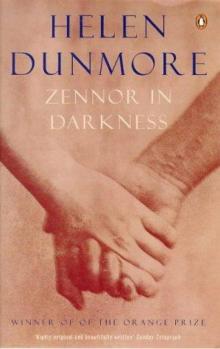 Zennor in Darkness
Zennor in Darkness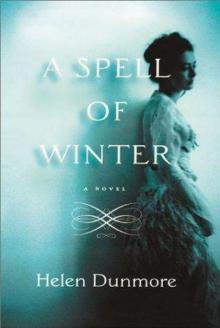 Spell of Winter
Spell of Winter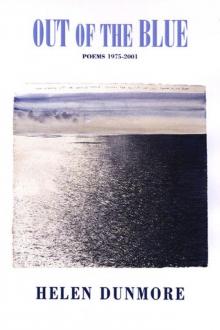 Out of the Blue: Poems 1975-2001
Out of the Blue: Poems 1975-2001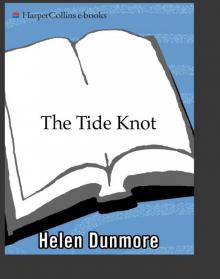 Tide Knot
Tide Knot The Betrayal
The Betrayal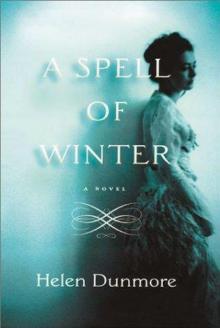 A Spell of Winter
A Spell of Winter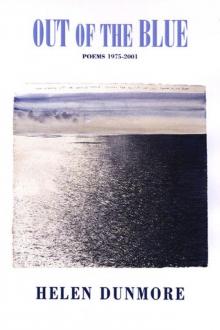 Out of the Blue
Out of the Blue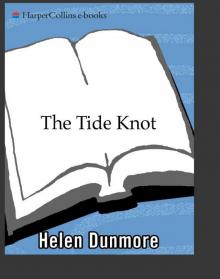 The Tide Knot
The Tide Knot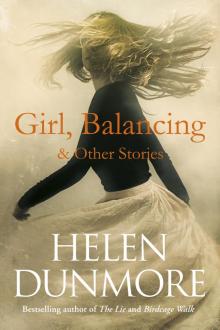 Girl, Balancing & Other Stories
Girl, Balancing & Other Stories Betrayal
Betrayal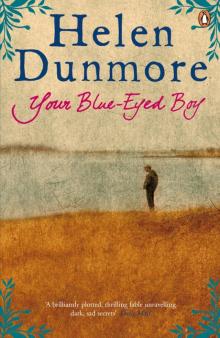 Your Blue-Eyed Boy
Your Blue-Eyed Boy